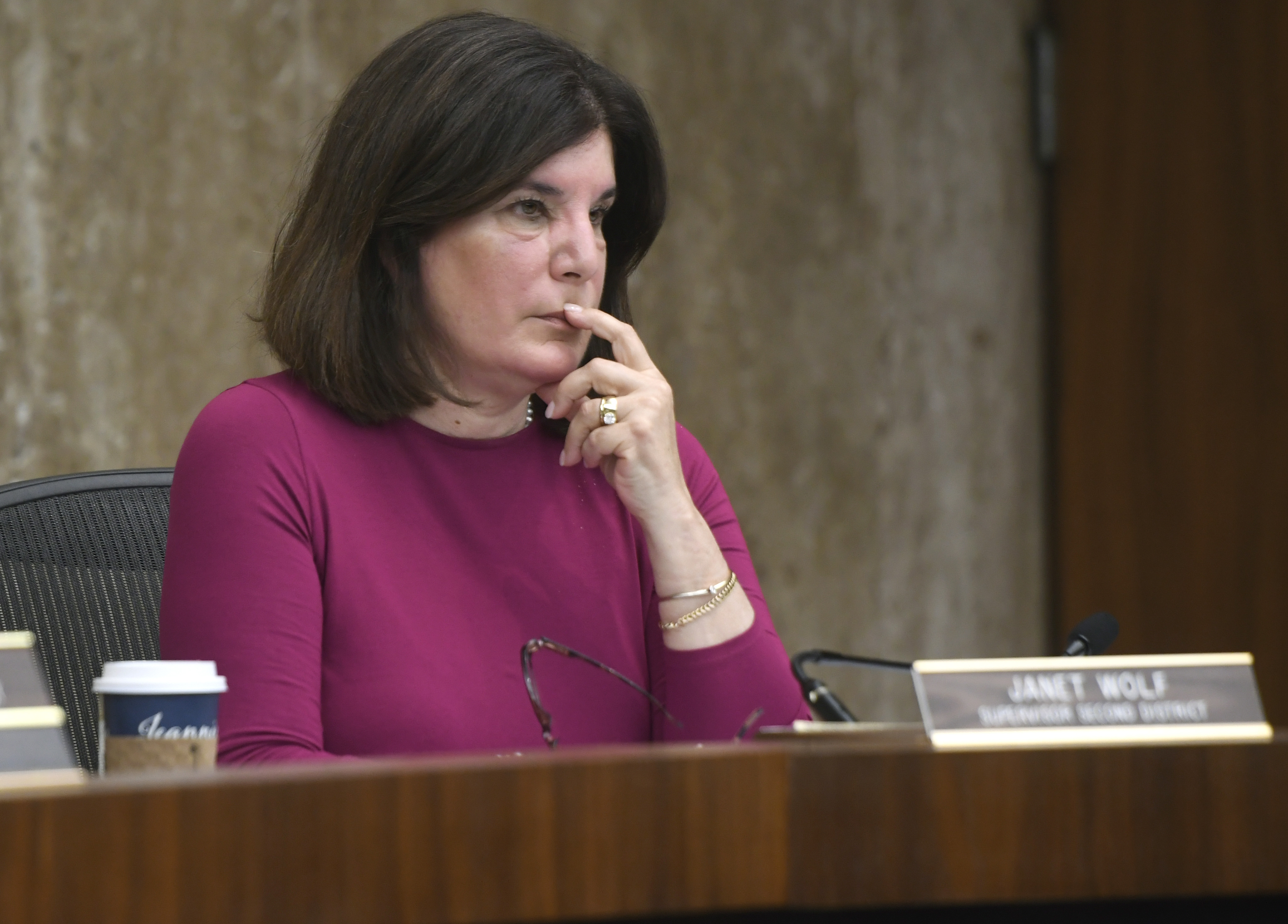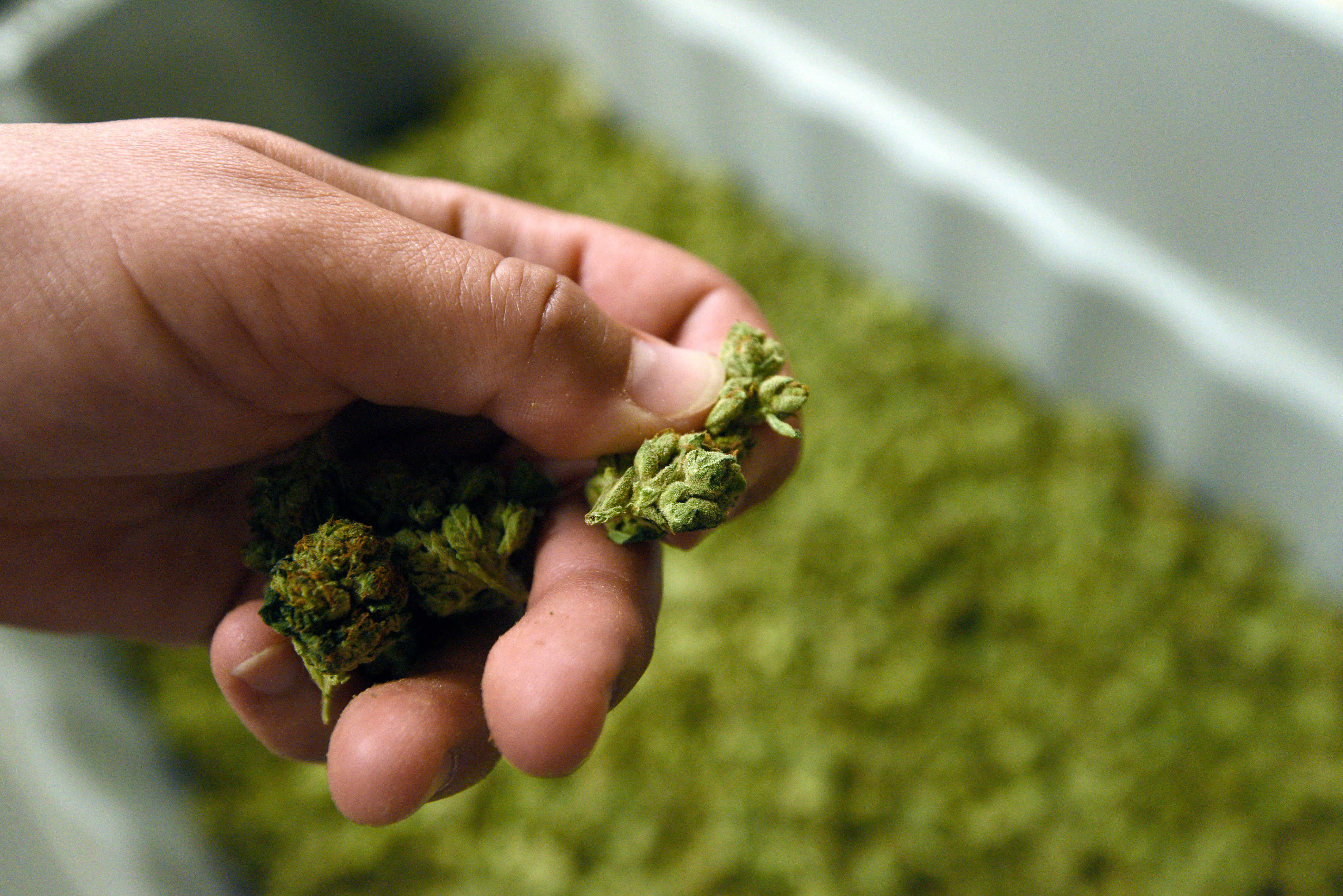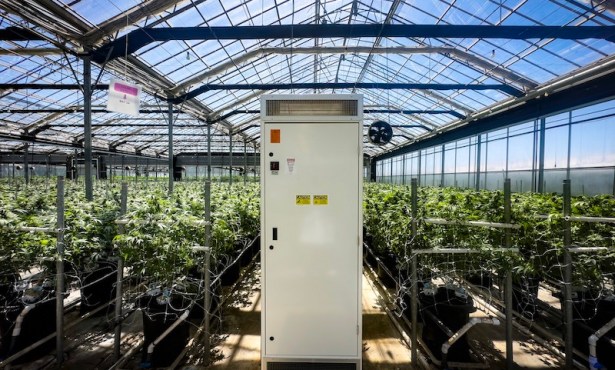Wolf Urges Caution in Cannabis Regulations
Calls for Limiting Number of Acres for Cultivation

County Supervisor Janet Wolf continues to push for more transparency in the rule-making process now underway in Santa Barbara County to regulate the burgeoning cannabis industry. In a recent mass email, she urged her constituents to weigh in on the Environmental Impact Report taking public comment until Friday, August 11.
Since the draft ordinance “has the potential to allow a very broad range of activities associated with marijuana in many zone districts,” she wrote, “it is crucial that residents” offer input, questions, or concerns.
Normalizing marijuana has long been a progressive issue. And, in Santa Barbara County, so has controlled growth. Now, for some, they are colliding.
Already, nearly half the estimated 400 acres of cannabis grown in Santa Barbara County is under cultivation in Carpinteria, according to the county’s self-reported registry.

Though many cannabis professionals dismiss Wolf as outright opposed to cannabis, she disagrees. “I’m not the dictator of marijuana use,” she said in a recent interview. Wolf stressed that the Eastern Goleta Valley Community Plan took seven years to complete. “I don’t think there was ever the notion our very few small ag parcels would be converted to marijuana cultivation,” she added. Residents are concerned, she said, that manufacturing cannabis could soon be allowed along the Hollister corridor.
Part of the problem is that the industry has dramatically evolved. “I always thought manufacturing was dry the leaves and roll the joint,” she said. Now facilities include what’s known as “volatile” and “nonvolatile” manufacturing, which cannabis industry professionals agree is mystified.
Wolf added that the zoning codes prohibit seemingly benign operations, including bakeries and sign shops, at the Turnpike and Magnolia shopping centers. But now, county planners and consultants are exploring the possibility of permitting cannabis businesses as part of the environmental review process.
Proponents say this wide-ranging approach allows regulators to study all the options. But Wolf asks, why even study it? “It’s kind of common sense. Common sense was removed from the public process.”
Andy Caldwell of the Coalition of Labor, Agriculture & Business (COLAB) noted, “I don’t think [Wolf] can conceive of making room for a marijuana operation because she wouldn’t make room for a Jack in the Box.”

While Wolf could not specify exactly where cannabis production should be permitted, she said she was “open to rational and reasonable places.” She also called for more public hearings, including on limiting the number of total cannabis acreage allowed.
Similarly, at a recent Planning Commission meeting, Michael Cooney, who represents the 1st District, asked Planning & Development Director Glenn Russell to bring the item before the commission. “I felt that it was really time or past time to start airing land-use issues before the Planning Commission,” he said. “It’s kind of like the skier got over the skis before it was ready to jump.”
That the cannabis ordinance drafting has happened behind closed doors in an ad hoc subcommittee meeting, led by county supervisors Das Williams and Steve Lavagnino, is another key concern for Wolf. The subcommittee believes the privacy allows them to operate efficiently. The state plans to issue licenses for cannabis operators in January 2018. Growers would also need local permits, so they are urging county supervisors to act swiftly so they can be competitive with the rest of the state. (By rough estimates, 7 percent of California’s cannabis is grown in Santa Barbara County.)
To be sure, this is not the county’s first ad hoc subcommittee. County supervisors Das Williams and Joan Hartmann convened private ad hoc meetings with Chumash leaders to discuss various matters after several public hearings proved unsuccessful. Wolf also sat on a subcommittee to review the Fire Department’s aviation unit. She noted, however, that the subcommittee was about internal policies, not public land-use issues.
From the start, though, Wolf said she found the cannabis industry “troubling.” She noted negative impacts she’s seen in her work in county government, citing juvenile justice and mental-health issues. More recently, though, she’s focused on neighborhood preservation as her driving motivation. “Some people have said, ‘You’re against marijuana,’” she said. “It’s not really that. I am just being sensible. It’s sensible planning.”
Asked if she had any personal experiences shaping her current position, she said no. While she recognized that pot is now legal, she asked, “Does it add something to our community? I have a hard time understanding that it does.”



